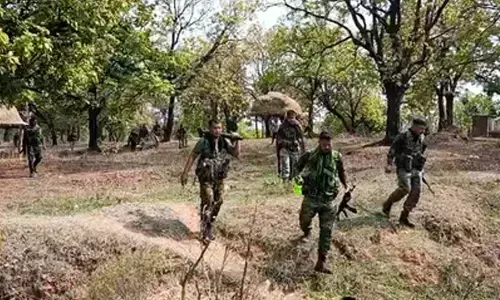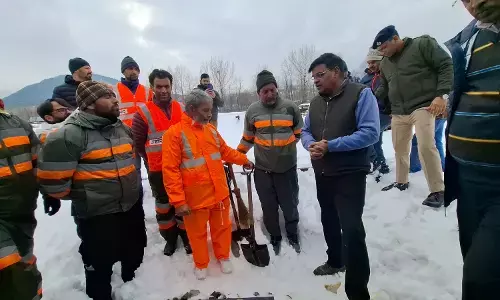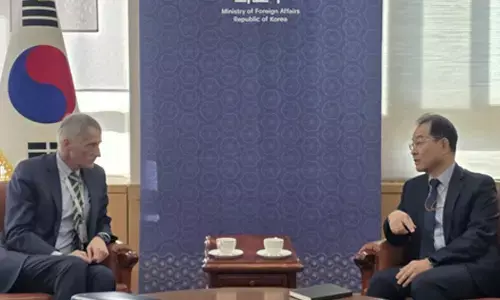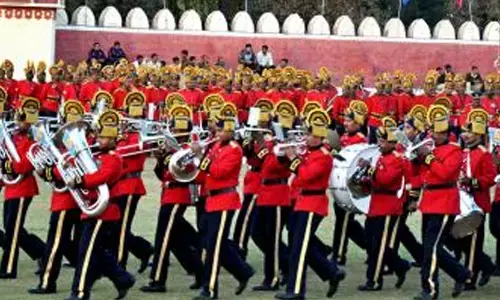Adultery in armed forces a complex subject
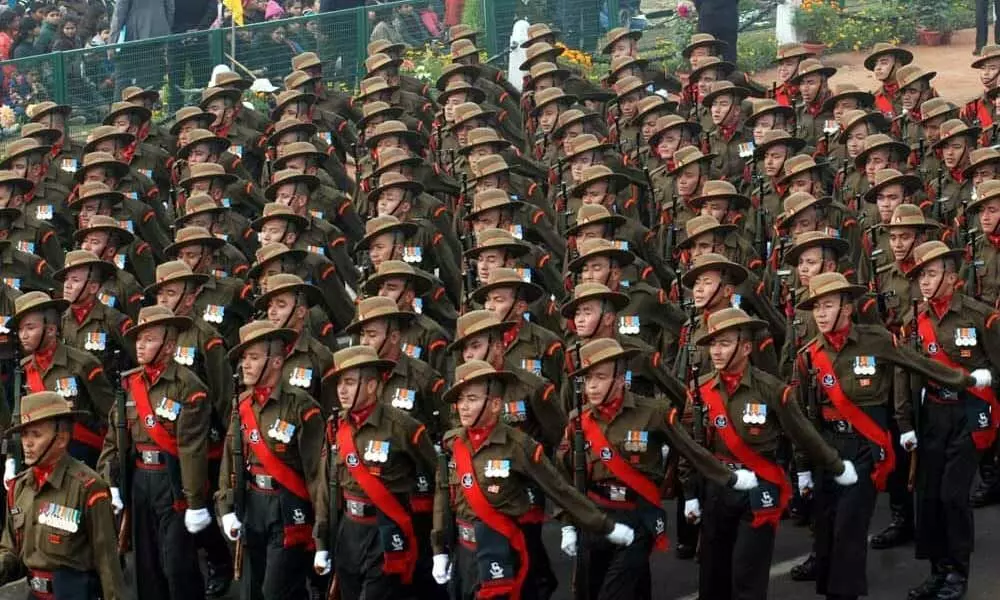
Adultery in armed forces a complex subject
The valour, dedication and love for the country and countrymen of Indian soldiers have been always regarded with high esteem and we are very proud of our armed forces
The valour, dedication and love for the country and countrymen of Indian soldiers have been always regarded with high esteem and we are very proud of our armed forces. Since Independence, the three wings of Indian military have been guarding us from intruders, terrorists and other external attacks.
They also come to our help whenever there is a natural calamity. Once enrolled in the armed forces, a soldier makes up his mind to sacrifice his life if the situation demands. The inspiring words of Capt. Vikram Batra, PVC, "Either I will come back after hoisting the tricolour, or I will come back wrapped in it, but I will be back for sure," continue to motivate every soldier in the country. However, the sexual needs of these soldiers, who live away from families and most of the time in harsh weather conditions, have made headlines now and then.
With the country's paramount court of justice on Wednesday agreeing to examine the Central government's request to keep adultery a crime in the armed forces, the issue has once again become a topic of discussion. It may be recalled that in September 2018, a Constitution bench of the Supreme Court junked the 158-year-old law that made adultery a crime in India. Under section 497 of the IPC, a man cannot be punished for an affair with a woman who is not his wife. As a matter of fact, there is no offence specified as 'Adultery" in the entire Army Act or the Rules made thereunder. In the pre-constitutional Military Manual, codified by the British, obviously also prior to the enactment of the present Army Act, 1950, there appears to be a reference to 'stealing the affection of a brother officer's wife' in the Armed Forces.
Whether the said act fulfils the ingredients of 'Adultery' as previously appearing in Section 497 of the Indian Penal Code, is not clear, since what constitutes 'stealing the affections of' another's wife is quite puzzling. The word 'stealing' indicates lack of consent and will of the other person. But statistics in this regard demonstrate that many officers have been prosecuted for having consensual relationship with the wife of a brother officer. Admittedly, the concept resonates logic and good faith, especially in the peculiar nature of environment and hierarchal working of the army.
Undoubtedly, the peace and harmony of the environment of a regiment or a unit will be adversely affected if the Commanding Officer or any superior officer is in a relationship with the wife of a subordinate officer or any other member of the armed forces. The entire working of the unit will suffer and may result in a complete destruction of faith and confidence which is required for the unit to discharge its duties as a cohesive unit, in the face of the enemy and in the interests of the security of the nation. However, whether all such consensual relationships have to be looked upon as an offence is likely to have caused any 'prejudice' to any other person subject to the act or has caused damage or injury to the environment in the regiment/unit, where the offender is posted or attached, is a moot question which needs to be looked at objectively.
Suppose an officer is alleged to be in a relationship with a lady married to an ex-serviceman, who is not remotely connected with the place of service of the so-called offender, it is unfair to convene a General Court Martial to prosecute such officer, especially if there is no indication of any prejudice being caused to any other person subject to the army act nor any adverse ramification in the environment of the working of the unit, since the husband or the complainant is not even a part of the unit and hence there can be no disruption or disturbance in the working of the organisation.










